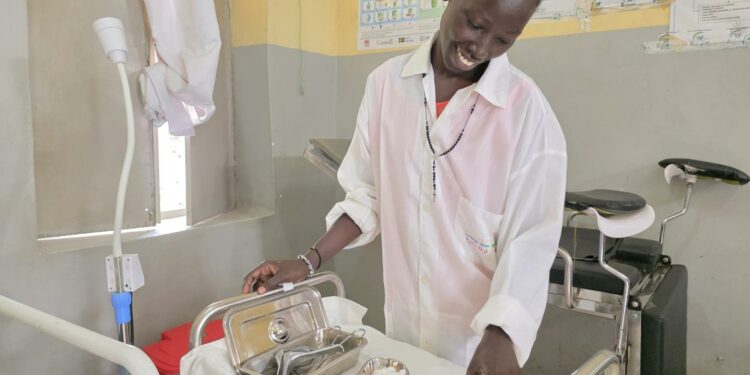In the heart of Africa, where life renews with each season and communities continually reinvent themselves amid challenges, South Sudan is writing a new story of hope and dignity. With determination and vision, the country is expanding access to sexual and reproductive health services (SRHR), a fundamental right that for years remained out of reach for many women and girls. This progress is no accident. It is the result of a concerted effort between the Ministry of Health, the World Health Organization (WHO), and strategic partners working to strengthen primary healthcare systems in seven of the country’s ten states. Above all, it is a testament to the resilience of the South Sudanese people and the community leadership rising amid ongoing crises.
Despite hardships caused by years of conflict, forced displacement, and climate-related disasters, South Sudan shows that progress is possible when political will meets community commitment. The figures speak volumes: in 2024 alone, more than 190 health workers were trained in maternal death surveillance, family planning, and care for survivors of gender-based violence. “Before, we lacked the resources and training to provide post-abortion care. Today, thanks to these trainings, we not only save lives but also restore hope,” says Kenyi Emmanuel Wani, a 27-year-old midwife at Munuki Primary Health Care Center in Juba.
Nairobi: AfriLabs and Konza Technopolis Sign Strategic Deal to Boost Innovation Across Africa
Women like Faida Jackline, 29, are also at the forefront of this transformation. “I can now diagnose and treat sexually transmitted infections. This knowledge allows me to better care for mothers in my community,” she says from the Kator Health Center. These midwives embody the Afropositive spirit: capable, compassionate, and essential to the revival of community health. Collaboration between WHO and the Ministry of Health has enabled the development of national guidelines for post-abortion care and equipped health centers with essential tools such as manual vacuum aspirators, beds, and supplies. At least 30% of selected centers are now prepared to deliver quality, rights-based, person-centered care.
Additionally, 14 midwives have been trained in cervical cancer screening across six health centers in Juba County. “Women now come to our centers confident they will receive professional and respectful care. This is true empowerment,” says Vivian Hawa, Reproductive Health Coordinator for Central Equatoria State. But the change extends beyond health centers. In a country where SRHR services were historically scarce, engaging community leaders has been crucial. More than 540 local and religious leaders have been sensitized on the importance of sexual and reproductive health, helping to break taboos, build trust, and pave the way for knowledge.
This development model—rooted in local knowledge and supported by international technical assistance—reflects the best of the African spirit: communities rebuilding with dignity, placing women at the center of action, and championing life, health, and the future. “Access to SRHR services is not just a health issue; it is an expression of dignity and human rights,” says Dr. Humphrey Karamagi, WHO Representative in South Sudan. “We are proud to support a process led by South Sudanese people who, with passion and perseverance, are ensuring that no one is left behind.”
South Sudan is not merely a country in recovery; it is a country in motion. With every health center that opens, every midwife trained, and every woman accessing quality services, the country proves that Africa is not just a continent of challenges but a continent of solutions. And in the heart of Africa, health and rights continue to flourish with strength.









